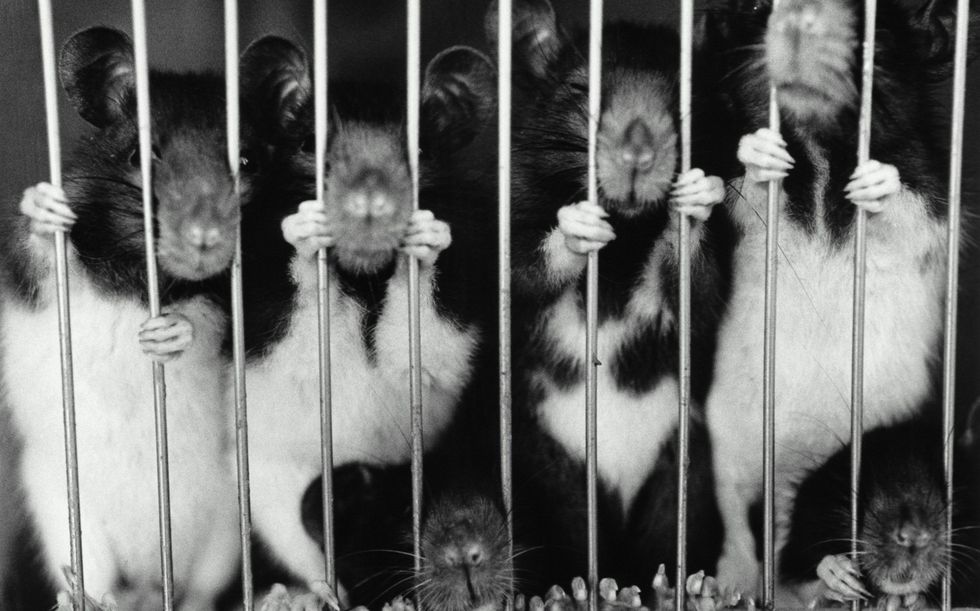Picture this: You've had an incredibly long day. Work sucked. Classes were hard. You failed a test. All you want is to take a nice, long, hot shower. You finally get home and take your shower, using your favorite color enhancing, volumizing shampoo. You look great. You feel great. You look down at your pet rabbit and cuddle her.
A rabbit, just like yours, the baby that you love so much, was seriously harmed just so that you can have your favorite shampoo.
Do you still feel great?
Civilization has been using animal testing for many years. The earliest records of the use of animal testing are found in Greece in the 2nd and 4th centuries BC. One of the first people to use this as a method was Aristotle. The more popular animal testing became, the more controversy was raised over it, and for good reason.
There are actually many rules, regulations, and laws that defend the use of animal testing. In the United States, under the Animal Welfare Act and the Guide for the Care and Use of Laboratory animals, published by the National Academy of Sciences, any procedure can be performed on an animal if it can be successfully argued that it is scientifically justified.
It's 2018. There are many different ways to test products than using unknowing and unwilling animals. Some are:
1. in vitro (test tube) test methods and models based on human cell and tissue cultures.
2. Computerized patient-drug databases and virtual drug trials.
3. Computer models and simulations.
4. Stem cell and genetic testing methods.
5. Non-invasive imaging techniques such as MRIs and CT Scans.
6. Micro-dosing (humans are given very low quantities of a drug to test the effects on the body on a cellular level, without affecting the whole body.
The list of benefits that comes with non-animal testing is extensive. Alternative tests are often far more reliable. The use of human tissue in toxicity testing is more accurate than any of the animal models. Non-animal testing is more cost effective, practical, and expedient. Also, cruelty-free products are more environmentally friendly, so it's a win-win.
There's really no reason for us to continue using poor animals to test our products. Make sure you check all of you personal hygiene items before you buy them and do your research on some of your favorite companies/brands.
You'll be surprised.






 The minimum wage is not a living wage.
StableDiffusion
The minimum wage is not a living wage.
StableDiffusion
 influential nations
StableDiffusion
influential nations
StableDiffusion












